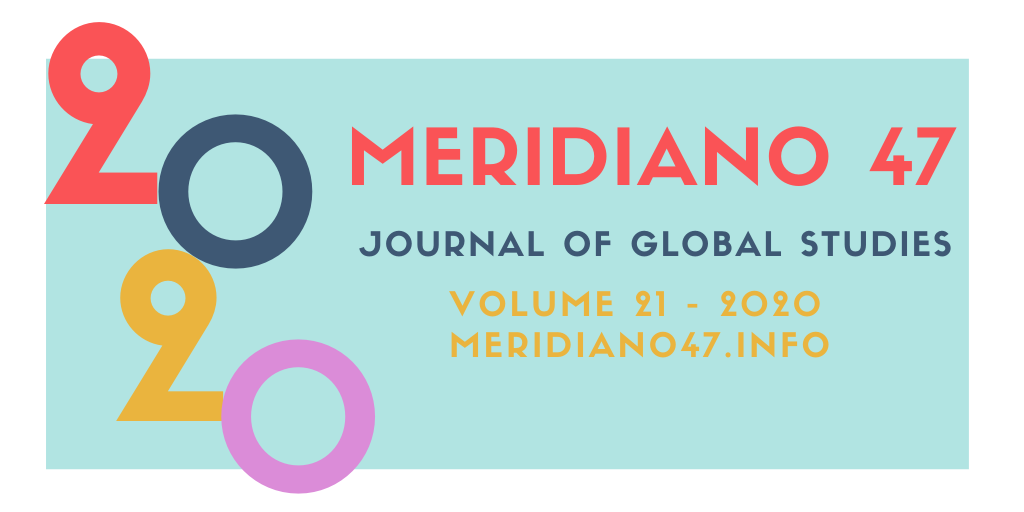A formação do complexo regional de segurança energética pela Energiewende na União Europeia
DOI:
https://doi.org/10.20889/M47e21003Palavras-chave:
Energia, Segurança Energética, União Europeia, AlemanhaResumo
No artigo discute-se como Energiewende converge a UE para um complexo de segurança energética. Baseia-se na teoria do Complexo Regional de Segurança, considerando a energia como um setor de análise que lida com o trade-off segurança energética e mudanças climáticas. Verifica-se que a UE evita medidas extremas sobre energia, encorajando a Alemanha a apresentar uma política regional partindo de experiências domésticas, o que a torna o principal exportador de energias renováveis.
Downloads
Referências
Andoura, S.; Vinois, J.-A. From the European energy community to the Energy Union: A policy proposal for the short and the long term. Jacques Delors Institute. Paris, 2015.
Buzan, B.; Wæver, O. Regions and Powers. Cambridge: Cambridge University Press, 2003.
Buzan, B.; Wæver, O.; Wilde, J. D. Security: A new framework for analysis. London: Lynne Rienner, 1998.
European Commission. Energy, 2016. Disponível em: <https://ec.europa.eu/energy/en>. Acesso em: 20 Dez 2016.
Ferreira, S. R. “Energiewende: A nova política energética da Alemanha”. Anais do 3º Seminário de Relações Internacionais da ABRI. Florianópolis: Anais. 2016.
Fisher, S.; Geden, O. “Europeanising the German energy transition”. Em Stiftund Wissenschaft und Politik, 2011.
Fraunhofer,F. ISE, 2016. Disponível em: <https://www.energy-charts.de/energy.htm>. Acesso em: 25 nov 2016.
Hake, J.-F. et al. “The German Energiewende: History and status quo”. Em Energy, 2015. 532-546.
International Energy Agency. What is energy security?. 2016. Disponível em: <https://www.iea.org/topics/energysecurity/subtopics/whatisenergysecurity/>. Acesso em: 21 Nov 2016.
Kemfert, C.; Horne, J. “Good Governance of the Energiewende in Germany: Wishful thinking or manageable?”. Em Hertie School of Governance, 2013. Disponível em: <https://www.hertie-school.org/fileadmin/images/Media_Events/BTW2013/20130820_Good_Governance_of_the_Energiewende_in_Germany_ClaudiaKemfert_Download.pdf>. Acesso em: 10 Dez 2016.
Kidd, S. “Russia and Germany: New opportunities today?”. Em Nuclear Engineering International, p. 10-11, Julho 2014.
Kisel, E. et al. “Concept for energy security matrix”. Em Energy Policy, 95, Agosto, 2016. 1-9.
Knopf, B. et al. Germany's Nuclear phase-out: Impacts on electricity, CO2 emissions and on Europe. [S.l.]: [s.n.], 2012. Disponível em: <https://www.mcc-berlin.net/fileadmin/data/pdf/Publikationen/Knopf_Pahle_Joas_Edenhofer_Germanys_nuclear_phase-out_2012.pdf>. Acesso em: 02 Dez. 2015.
Lagsdorf, S. EU energy policy: From the ECSC to the energy roadmap, 2050. [S.l.]: [s.n.], 2011.
Morris, C.; Pehnt, M. Energy transition: The German Energiewende. Berlim: Heinrich Böll Sti ung, 2016.
Offenberg, P. “Taking stock of German energy policy in a European context”. Em A. Brunnengräber, M. R. Di Nucci (Hrsg.), Im Hürdenlauf zur Energiewende, DOI 10.1007/978-3-658-06788-5_12, © Springer Fachmedien Wiesbaden 2014 DOI - 10.1007/978-3-658-06788-5_12
Renn, O.; Marshall, J. P. “Coal, nuclear and renewable energy policies in Germany: From the 1950s to the "Energiewende". Em Energy Policy, 5 Abr. 2016.
Schlögl, R. “The Revolution Continues: Energiewende 2.0”. Em Agewandte Essays, 54, 2015. 4436-4439.
Sovacool, B. K. “Defyning, measuring, and exploring energy security”. Em: Sovacool, B. K. The Routledge handbook of energy security. Abingdon: Routlegde, 2011. p. 1-42.
Steinbacher, K.; Pahle, M. “Leandership by diffusion an the German Energiewende”. Em PIK Discussion Paper, Potsdam, Fevereiro 2015. 1-27.
Von Hippel, D. F. et al. “Evatluating the energy security impacts of energy policies”. In: Sovacool, B. K. The Routledge handbook of energy security. Abingdon: Routledge, 2011. p. 74-95.
Zelensky, M. Changing the energy security balance in the Baltic Sea region: Building energy security complex and community. 2009. 87 f. Dissertação (Mestrado): CBU Programme, International Relations, 2009. Disponível em: <http://uta32-kk.lib.helsinki.fi/bitstream/handle/10024/81304/gradu04082.pdf?sequence=1>. Acesso em: 03 set 2016.
Zimmer, M. German energy policy in the European contexto. EUCE public lecture at University of Alberta on October 29, 2014. Disponível em https://cloudfront.ualberta.ca/-/media/eucentre/pdfs/germanenergypolicyintheeuropeancontextlecture.pdf
Downloads
Publicado
Como Citar
Edição
Seção
Licença
Copyright (c) 2020 Meridiano 47 - Journal of Global Studies

Este trabalho está licenciado sob uma licença Creative Commons Attribution 4.0 International License.






